The adult worming routine is not suitable for horses under the age of five. Foals and youngsters up to four years need more careful monitoring because their natural immunity to worms has not yet had time to develop. We strongly advise that owners of young horses contact Tower Equine for advice, as this can vary depending on individual premises. However, a basic guide is as follows:
Broodmares
- Treat pregnant mares as normal adult horses with a 3 x yearly WEC in summer, autumn and winter and give a single dose of Equest Pramox in the autumn.
- In addition, give a dose of an ivermectin based wormer just before foaling.
- Do not worm in the two weeks after the mare has foaled.
- Continue with WECs as normal after foaling.
From foal to one year old
- Do not start worming until the foal is two months of age.
- Then start with a single dose of fenbendazole (Panacur) as a roundworm treatment. Repeat this every eight weeks up to the age of six months - 3 treaments in total.
- At eight months of age do a WEC and treat with Equest Pramox.
- In the December of the foal’s first year, perform a second WEC and treat with fenbendazole (Panacur).
Yearlings to 4-year-olds
- WEC every three months with worming where indicated and a post-worming WEC to check effectiveness of any treatment if required.
- Treat in spring and autumn with Equest Pramox which has a combined effect against cyathostomin and tapeworms.
- An optional third treatment in mid-summer using a different wormer if stocking levels are high.
- Manage pasture effectively, ideally with a system of rotation and resting. In particular, ensure that yearlings do not graze the same fields in successive summers. Clear paddocks of droppings at least twice a week.



